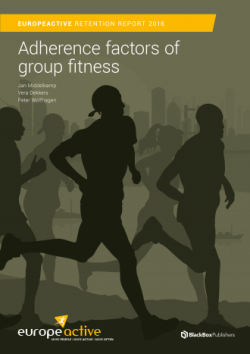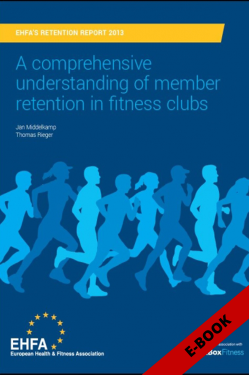My account
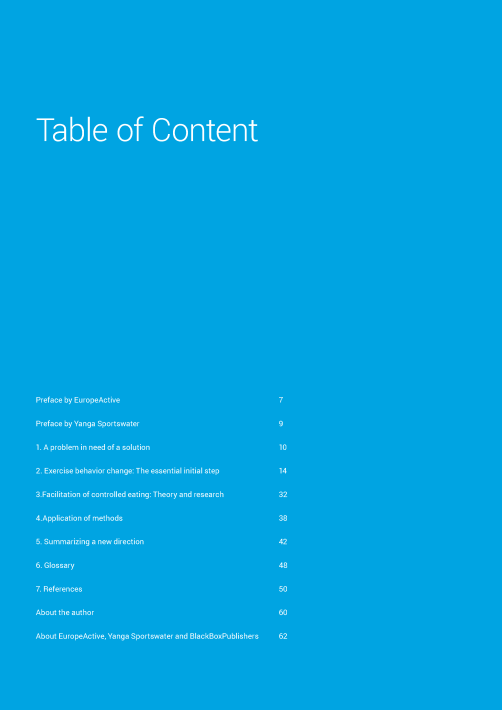
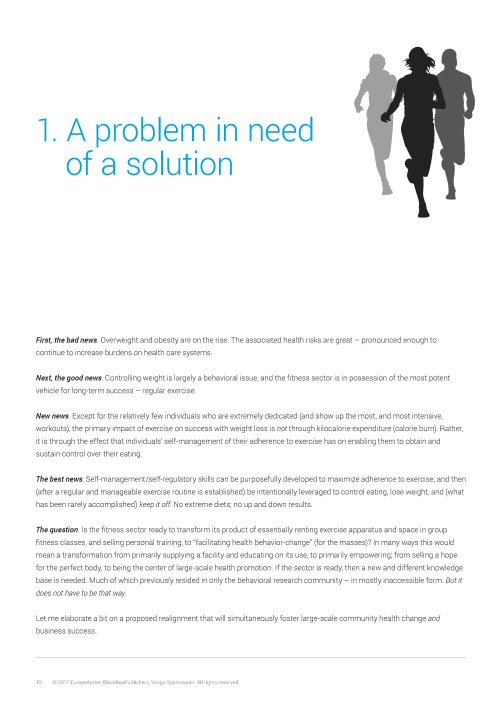
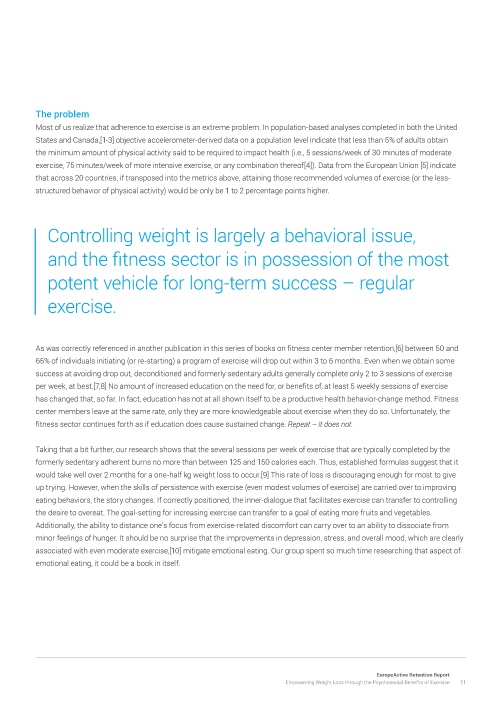
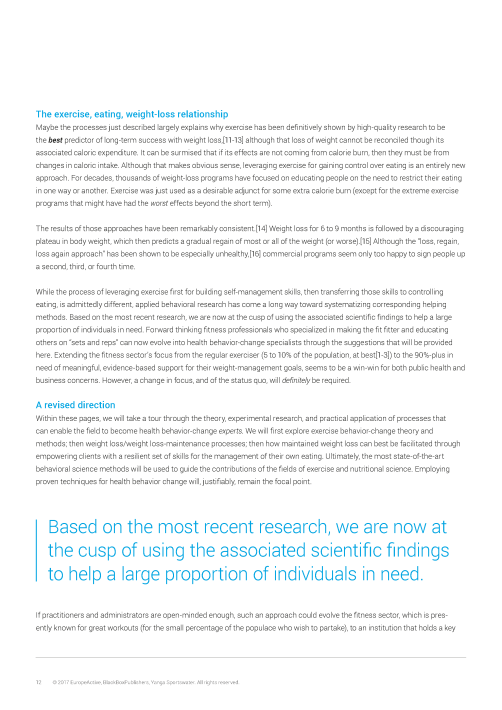
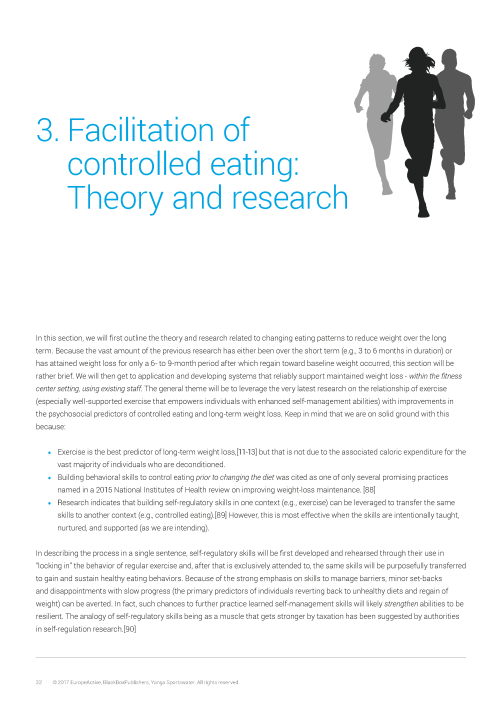
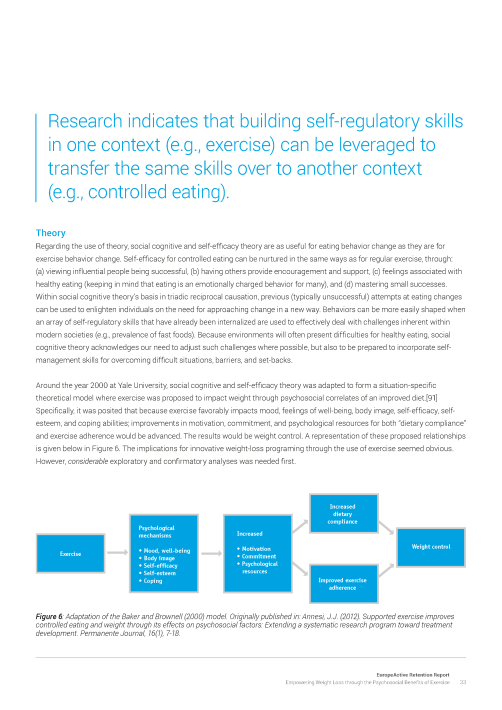
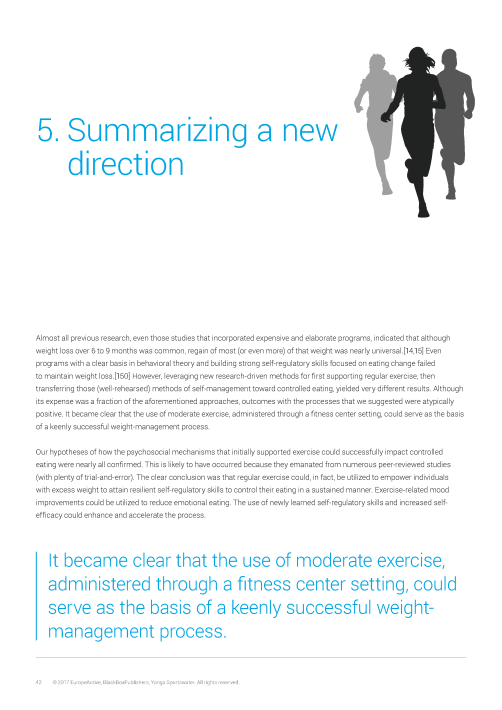
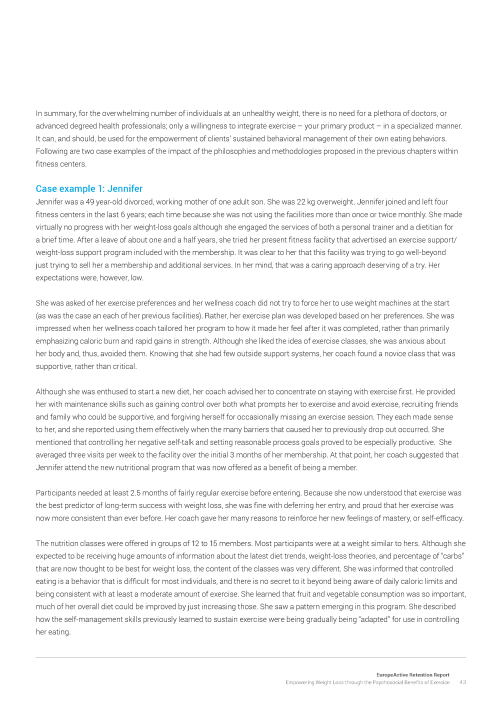
EuropeActive Retention Report 2017: Empowering Weight Loss through the Psychosocial Benefits of Exercise
Self-management/self-regulatory skills can be purposefully developed to maximize adherence to exercise, and then (after a regular and manageable exercise routine is established) be intentionally leveraged to control eating, lose weight, and (what has been rarely accomplished) keep it off. No extreme diets; no up and down results. The question "Is the fitness sector ready to transform its product of essentially renting exercise apparatus and space in group fitness classes, and selling personal training, to “facilitating health behavior-change” (for the masses)?" In many ways this would mean a transformation from primarily supplying a facility and educating on its use, to primarily empowering; from selling a hope for the perfect body, to being the center of large-scale health promotion. If the sector is ready, then a new and different knowledge base is needed. Much of which previously resided in only the behavioral research community – in mostly inaccessible form. But it does not have to be that way.


